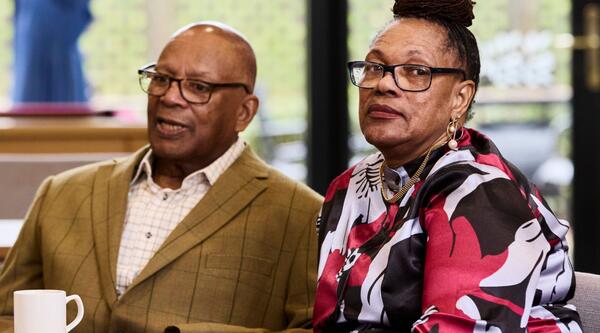Managing money as a person with dementia
There are ways to make it easier for people with dementia to manage their money. This includes staying protected from financial scams.
Living with dementia: living alone
- Living alone as a person with dementia
- Managing everyday tasks as a person with dementia
- You are here: Managing money as a person with dementia
- Planning ahead as a person with dementia
How can I manage my money as a person with dementia who lives alone?
Managing money can become more difficult when you have dementia.
If you live alone, there may be some extra things for you to think about. It may be harder for you to get to the bank or the post office, for example. You might also need to think of ways to remember to pay bills.
Watch our video for advice on managing your money, and hear from Martyn who was diagnosed with dementia aged 57.
Tips for managing your money when living alone
Try the following suggestions to make it easier to manage your money:
Find a system that works for you
- You could work out how much money you need each week and put a routine in place to withdraw it on the same day. You could put different amounts in individual envelopes for different things – for example, money for shopping in one, money for the newspaper in another.
- Set up direct debits for your regular bills such as gas, electricity and council tax. This means you won’t need to remember to pay a bill each time.
Talk to your bank
- Talk to your bank about options they offer that can help you. For example, cash is increasingly being replaced by alternative payment options such as contactless and this might work for you. Some banks now have their own guides and specific advisers trained to support people with dementia with their banking. Speaking to your bank can make finances much easier to manage in the long term.
- Think about online or phone banking if you find it hard to get to your local branch.
Tips on how to avoid scams when living alone
You might be more vulnerable to scams and tricks if you live alone, so it’s important to know the dangers and make sure you keep yourself protected.
Watch our video for advice on scams or read below for more tips:
Avoid cold callers
- Be aware of cold callers. Never give your bank details to anyone.
- You could put a ‘no cold callers’ sign on your front door. You may be able to get one from your local council.
- If you are unsure about someone (such as a worker or salesperson) ask for their identification. If you still feel unsure ask them to come back when you have someone with you. You can also ring the company to check who they are and if they are meant to be in your area that day.
Opt out of unwanted mail, calls or emails
- Stop unwanted junk mail and telephone calls by registering with the Mail Preference Service and Telephone Preference Service. You can also buy call blockers to stop getting telephone calls from unfamiliar numbers.
- If you are getting unwanted marketing text messages or emails, opt out or unsubscribe to stop receiving future messages.






